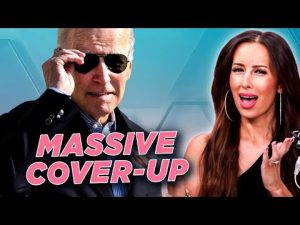The ongoing trial involving celebrity mogul Diddy, formally known as Sean Combs, reveals a shocking reality about how the American public often distinguishes between illegal actions and moral conduct. This trial isn’t just a sensational story; it sheds light on deeper societal issues surrounding celebrity culture and justice in America. With the government diving deep into allegations of trafficking and racketeering, the circus-like atmosphere of courtroom drama takes center stage, yet the public’s appetite for scandal seems insatiable.
As the proceedings grind on in New York, the testimonies are painting a chaotic picture of life surrounding Diddy. From gun components and high-heeled shoes to an alarming quantity of baby oil discovered at his Miami mansion, the bizarre details seem ripped from a Hollywood script. Perhaps the most unsettling revelations involve domestic abuse, with claims that victims might continue to love their abusers while battling substance issues and buried memories. This complicates the narrative, suggesting that even amidst the chaos, emotional connections can blur the lines of right and wrong.
The trial has also taken an intriguing turn with claims of past jealousy-fueled threats, including an incident where rapper Kid Cudi’s car supposedly exploded after Diddy allegedly threatened to blow it up. Such accounts raise eyebrows, creating a narrative where personal vendettas and legal accusations spiral into a larger discussion about accountability in the celebrity sphere. If someone threatens to destroy a vehicle, it’s reasonable for observers to question how hollow such a threat must be before it leads to action. Situations like these force society to grapple with the stark realities of celebrity culture and the lengths to which individuals will go to protect their own.
Yet, amidst the chaos, the issue of conspiracy theories looms large. Some commentators suggest a more elaborate narrative where Diddy operates with hidden affiliations to intelligence agencies. While it’s easy to dismiss such claims, they spark a critical conversation about evidence and speculation in our public discourse. The call for evidence in the wake of grand claims is essential; otherwise, we risk muddling genuine discussions in a sea of unfounded theories that amount to little more than gossip. Rational debate requires a commitment to truth over speculation, especially when the reputations of individuals hang in the balance.
Ultimately, as the Diddy trial proceeds, one must ask whether it will serve as a cautionary tale about personal accountability and the consequences of one’s actions, especially for those living in the public eye. The sensationalism surrounding celebrities often overshadows genuine issues, leading to a culture that prioritizes spectacle over substance. If anything, this trial throws into sharp relief the need for a deeper examination of how we define justice and morality in a world that often seems more concerned with headlines than principles. So, as audiences tune in, contemplating the next outrageous detail, they might just consider whether this reflects larger societal values—or a troubling disconnect between what is legal and what is right.







